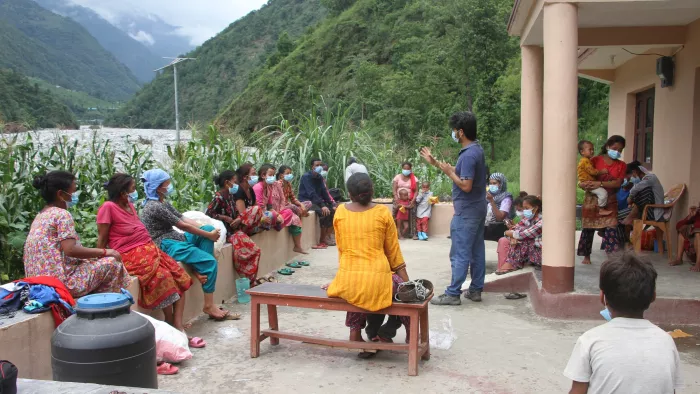
Risk and accountability initiative
The risk and accountability initiative uses design thinking to explore new approaches and tools for assessing and managing risk in the humanitarian sector.
This initiative brings together a diverse group of people from both within and outside the humanitarian sector to consider questions about risk and accountability. We wanted to come up with a range of ideas, considering the perspectives of different groups of people.
Using a design thinking approach, the process began in 2021 with a session to identify the problems. The next step was to generate a wide range of possible solutions before narrowing them down to a set of ideas that can be piloted and tested. This then leads into an iterative “test, learn, develop” phase.
The ultimate goal is to influence risk and accountability requirements, so that local and national NGOs, as well as community-based groups, can access funding more quickly.
The programme is a partnership with Humentum.
Reimagining Risk and Accountability | Start Network and Humentum
Why this approach
Current approaches to risk management in the humanitarian sector are huge barriers to locally led humanitarian action. International NGOs feel caught in a “risk sandwich”, responsible for the risks of both their funders and their implementing partners. And national and local NGOs feel undermined by approaches that see them as inherently riskier than international NGOs.
There must be another way of doing things. And a new approach to problem-solving – where people can draw from the creativity of peers – might be the way of finding it.

